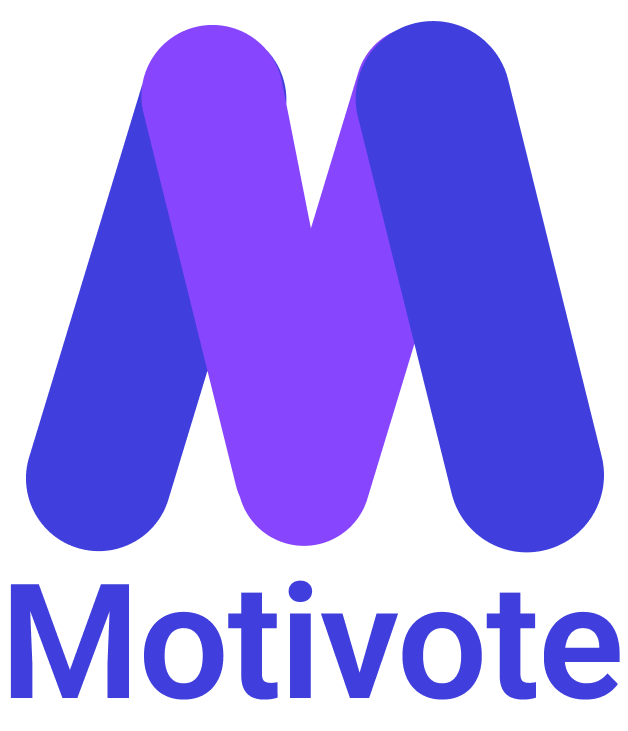Integrating Voting Into Academics
Encouragement from faculty, staff, and other students makes a significant difference in student registration and turnout. This is a guide to "making the case" for talking about voter engagement and upcoming elections in higher ed courses.
The 'Why'
Why should college and universities promote talking about voter registration and education in classrooms?
Not only is it a federal legal requirement for schools to provide voter registration forms to enrolled students, it's also an effective strategy for increasing participation.
Research shows shows encouragement from faculty, staff, and other students makes a significant difference in engagement.
In a study of short classroom presentations by both students and professors:
- Voter registration rates increased by approximately 6 percentage points
- Voter turnout rates increased by 2.6 percentage points.
College courses are also one of the most effective ways to support civic engagement because of timing in young voters' lives:
- College students are young, have little or no history of voting, and are residentially mobile, which makes them a population in great need of registering to vote.
- Voting is habit-forming: Longitudinal studies show that voting in one election substantially increases the likelihood of voting in the future, so helping students vote in their first election sets them up to be a voter for life.
- Many students mistakenly assume that they were registered to vote in high school, and not realize this until it's too late. Students who did register in high school may want to to update it to their campus residence. Students have the right to register either at home or school.
- Since you must be registered at your current address, students benefit from extra prompting to check their registration status since they often move year-to-year.
- Students could have be purged from voter rolls if they've skipped elections in the past, and will not realize this unless they check their registration status.
Making The Case
Despite the impact of this strategy, it’s not always clear how to make space to talk about voting in an academic environment that doesn't feel directly aligned with elections, like Political Science or History.
These are some recommended talking points and suggestions to make the case.
No matter what your field of study, elected officials and policy shape:
- The laws that regulate or deregulate your industry
- The type of research that occurs and is funded in your field
- Cost and rules around student loans and tuition that impact every student
Your Major On The Ballot is a resource from American University that makes the case for how voting connects to dozens of majors, from Accounting to Visual Arts.
A few highlights:
- Accounting and Finance: Governments spend a lot of money! The Constitution delegates "the power of the purse" to the U.S. House of Representatives. Because we elect House members every two years, we have a say in taxes and where public money goes. Enter financial gurus like you— if you care about effective public spending and financial transparency, you've got a reason to vote.
- Engineering: When it comes to infrastructure design, public transportation, energy sources, and investments in the military, engineers matter a great deal! When governments authorize funding for any of the projects mentioned above, politicians rely on engineers for safe, quality results. We need you to vote—your voice has the potential to boost public safety, economic mobility, and even environmental health!
- Physics:
Physics serves as the foundation of all energy policy and space travel. Physics is also a major player in infrastructure and military engineering. To ensure that governments are investing enough money into scientific research, fossil fuels, alternative energy sources, and the military, we need physics majors like you to get involved in politics, and that starts by getting out the vote!
Guiding Questions & Suggestions
There are numerous ways to incorporate voting into academics.
In addition to in-classroom presentations by the office or campus coalition that leads voter engagement, your team can recommend that faculty members include information about voting and upcoming elections on their course syllabi.
Course Syllabi
According to the Campus Election Engagement Project, one of the fundamental ways that faculty can establish community norms is through syllabus language (ex: how to access disability services).
Syllabi also provide unique access to all enrolled students. Embedding resources on how to register and vote not only educates and reminds students, but it helps "normalize" and institutionalize voter engagement on campus.
The timing is also well-aligned. Students first see their syllabi at the beginning of the new academic year, ahead of November election registration deadlines. Students also regularly revisit syllabi throughout the semester.
Classroom Discussions
If faculty members wish to host voting discussions in their classrooms, these are useful resources to consult:
The University of Michigan’s Ginsberg Center has compiled a set of faculty-oriented resources to promote reflections and discussions, with prompts including:
- What examples can you share of how broader economic, political, health, educational and social systems impact your discipline or field?
- How is your discipline or field affected by local, state or federal legislative policies or judicial decisions?
- What forms of data and analysis are considered legitimate in your field and why?
The Campus Election Engagement Project offers suggestions for integrating election issues into courses through conversations, assignments and volunteerism.
Examples include:
- Give academic credit for student election engagement service.
- Assign related research and writing projects related to election topics.
- Have students create their own nonpartisan candidate or issue guides.
- Have students fact-check as a strategy to teach media literacy skills.
Project Pericles, a nonprofit organization, offers a guide for educators featuring 10-15 minute activities that can be used independently or in conjunction with existing plans. They also have a sample presentation deck on "Why Voting Matters."
STEM-Specific Resources
STEM students vote at lower rates compared to other types of programs.
This means STEM professors can make a major impact both by incorporating discussions about democracy and voting into their classes and reducing voting barriers like not scheduling labs on Election Day.
The Science and Civics Guide offers discussion guides for specific areas of study. (ie. How do you think we should make decisions about space travel? What is the role of chemists and product engineers regarding consumer health and safety?)
Building a Culture of Civic Engagement in STEM has an editable slide deck covering topics like 'why science needs democracy' and 'how science intersects with voting.'
You may also be interested in these articles:
- Why the STEM Vote Matters - MIT
- Do STEM Students Vote? - Brown University
- Why Don’t STEM Majors Vote as Much as Others? - The Conversation
- Civic Engagement in the STEM Classroom - PLOS
Additional Resources
- Ask Every Student - Your Major on the Ballot
- University of Michigan - Tools for Supporting Civic Engagement
- ScienceRising - Building a Culture of Civic Engagement in STEM
- MIT - Why the STEM Vote Matters
- Brown University - Do STEM Students Vote?
- The Conversation - Why Don’t STEM Majors Vote as Much as Others?
- PLOS - Civic Engagement in the STEM Classroom
- CEEP - Incorporating Election Engagement Into Your Courses






